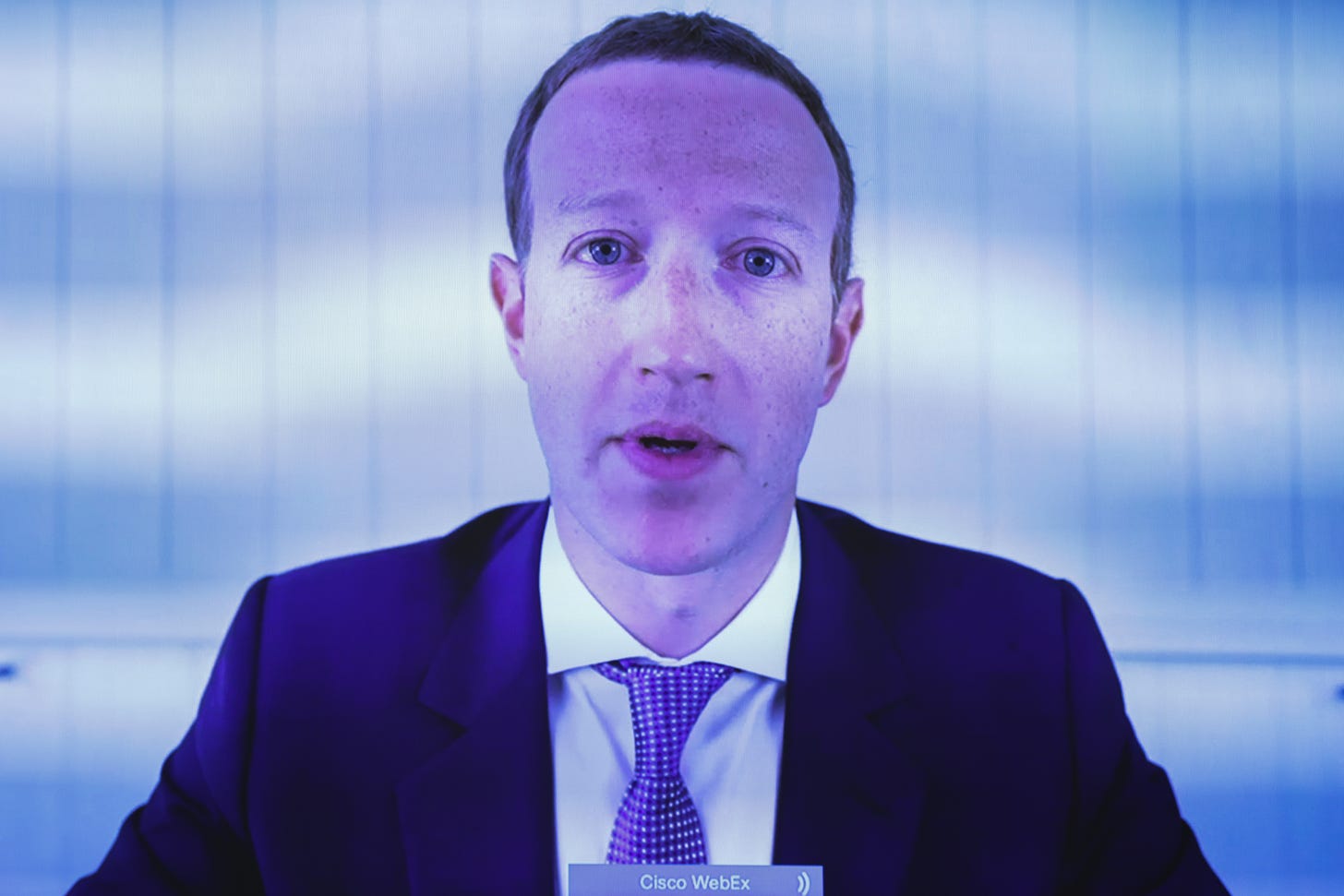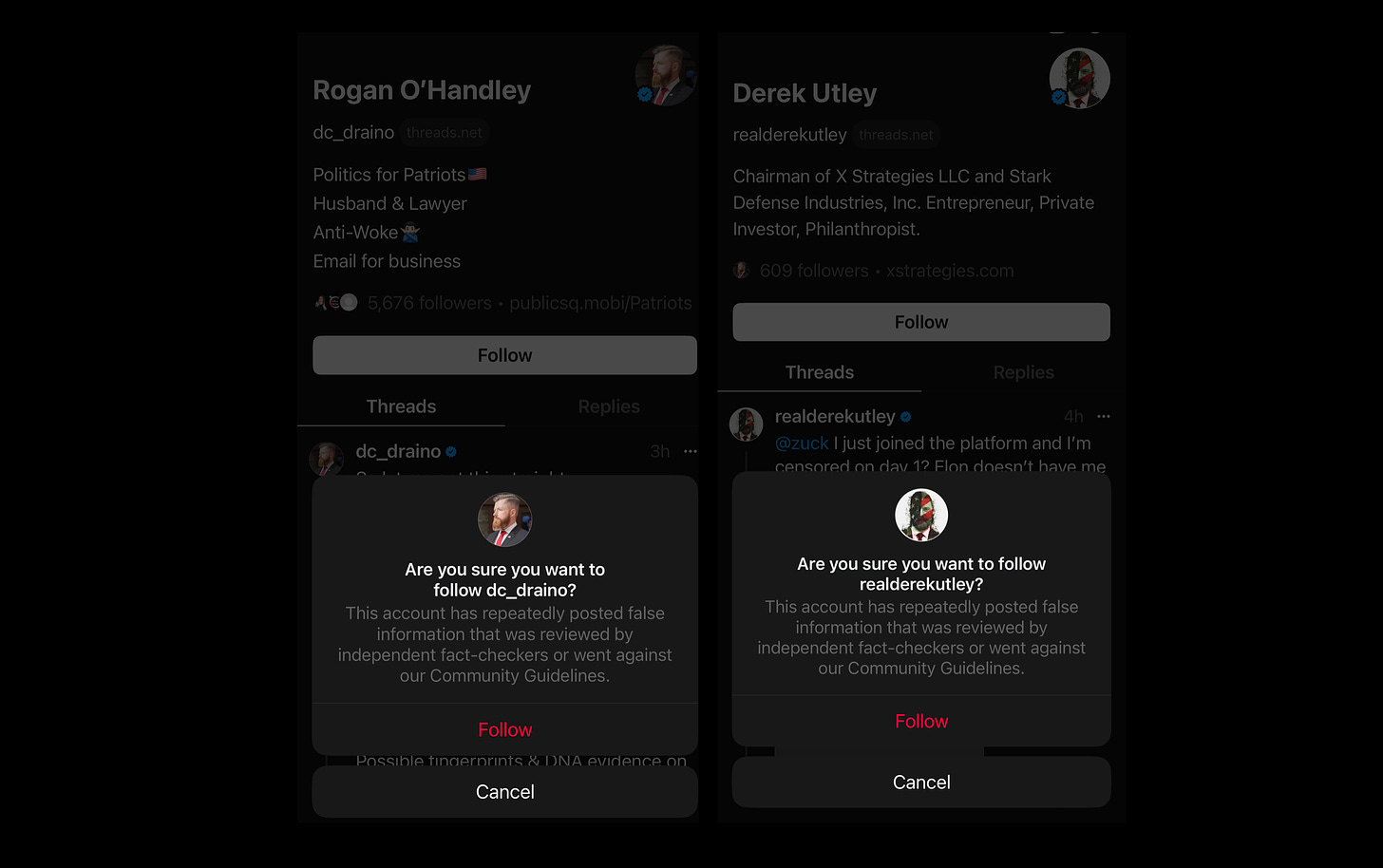Secret Censorship At Facebook’s Twitter Clone “Threads”
Congress must either break up Facebook or mandate transparency as a condition of giving the social media monopoly Section 230 liability protections
Mark Zuckerberg, the founder of Facebook/Meta’s new competitor to Twitter, “Threads,” promised users a better experience than Twitter.
“I think there should be a public conversations app with 1 billion+ people on it,” said Zuckerberg. “Twitter has had the opportunity to do this but hasn’t nailed it. Hopefully we will.”
But within a few hours of launching, Threads was already secretly censoring users and not offering them the right to appeal.
“@Meta/IG just released their new threads platform,” said conservative commentator Derek Utley at Twitter, “and I’ve been informed by multiple users that I’m censored on their new platform. Sheesh, can’t a dude catch a break.”
Another conservative, Rogan O’Hanley, said, “First 5 minutes on Threads and already censored. What a platform.”
Threads flashed a warning after users clicked on Utley and O’Hanley’s profiles. “Are you sure you want to follow…?” asked the Threads warning. “This account has repeatedly posted false information.”
It’s true that Meta has a legal right to censor users, that Twitter censors too, and we are less than 24 hours into the launch of Threads.
But citizens give Meta broad (Section 230) liability protection that other media companies don’t get. It is thus reasonable to expect that, in return, Meta and other social media platforms should be transparent about their censorship decisions and offer users the right to reply.
Where Twitter has censored since being bought by Elon Musk, much of the censorship has been required by governments like India and Turkey, or has been of economic competitors, like Substack. There is little evidence of any comparable political or viewpoint censorship.
And while we should give time to Meta to course correct, Zuckerberg has already made clear through Facebook lawsuits that the company views its “fact checks” as “opinions,” not objective facts.
Too Big To Free







